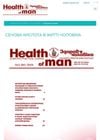 43 citations,
October 1955 in “The journal of nutrition/The Journal of nutrition”
43 citations,
October 1955 in “The journal of nutrition/The Journal of nutrition” Germ-free rats need biotin for growth and have different vitamin metabolism compared to regular rats.
 82 citations,
August 2017 in “Cell Reports”
82 citations,
August 2017 in “Cell Reports” An imbalanced gut and lack of biotin can cause hair loss in mice.
 13 citations,
April 2019 in “Actas Dermo-Sifiliográficas”
13 citations,
April 2019 in “Actas Dermo-Sifiliográficas” Vitamin D is important for skin health, but more research is needed to understand its full effects and treatment potential.
 231 citations,
July 2008 in “Nutrition reviews”
231 citations,
July 2008 in “Nutrition reviews” Diet changes can protect against harmful environmental effects on fetal development.
 22 citations,
October 2012 in “Journal of Investigative Dermatology”
22 citations,
October 2012 in “Journal of Investigative Dermatology” Altered retinoid metabolism in cicatricial alopecia suggests a balanced vitamin A diet may prevent the condition.
 August 2024 in “Indian Journal Of Clinical Practice”
August 2024 in “Indian Journal Of Clinical Practice” A balanced diet and healthy lifestyle help manage PCOS symptoms.
9 citations,
April 2018 in “Biology of reproduction” Diet changes hormone levels in pregnant ewes by affecting metabolism, not placental synthesis.
July 2021 in “Journal of scientific research and reports” Omega-3 fatty acids improve heart health, reduce inflammation, help joint and muscle conditions, and can improve skin disorders.
11 citations,
October 2020 in “Sultan Qaboos University medical journal” Bariatric surgery helps with weight loss but can cause complications and nutritional deficiencies.
3 citations,
January 2009 in “Elsevier eBooks” Soy can improve skin, hair, and nails.
November 2019 in “BMC veterinary research” The hair loss in Belgian Blue crossbred calves was caused by a diet issue, not by disease or infection.
3 citations,
September 2014 in “SpringerPlus” Human hair loss may have evolved to help increase brain size.
A molecule called α-ketobutyrate was found to extend lifespan and improve aging-related symptoms in worms and mice by activating certain cellular pathways and may help develop anti-aging treatments for humans.
 April 2023 in “Journal of Investigative Dermatology”
April 2023 in “Journal of Investigative Dermatology” Taking nicotinic acid supplements might help with acne by affecting the skin's oil glands, but high doses are needed.
 29 citations,
November 2022 in “Nature Medicine”
29 citations,
November 2022 in “Nature Medicine” Genetic variations greatly affect individual metabolism and can impact health and disease risk.
 26 citations,
May 2021 in “International Journal of Molecular Sciences”
26 citations,
May 2021 in “International Journal of Molecular Sciences” Cheonggukjang may help prevent and manage various diseases and improve overall health, but its odor and safety concerns need addressing.
 February 1999 in “Strength and Conditioning Journal”
February 1999 in “Strength and Conditioning Journal” Androstenedione, a hormone supplement, doesn't improve muscle or performance and can cause harmful side effects.
11 citations,
October 1941 in “Experimental Biology and Medicine” PABA helps prevent gray hair and hair loss in mice.
 October 2007 in “Humana Press eBooks”
October 2007 in “Humana Press eBooks” Saw palmetto can help with prostate issues and may promote hair growth.
 July 2012 in “Hair transplant forum international”
July 2012 in “Hair transplant forum international” Lifestyle choices like stress, smoking, heavy drinking, sun exposure, and chemical hair treatments might speed up hair loss in people with androgenetic alopecia.
13 citations,
July 2020 in “World journal of stem cells” Vitamin D and calcium are important for skin stem cell function and wound healing.
 1 citations,
May 2015 in “Primary Health Care”
1 citations,
May 2015 in “Primary Health Care” Effective acne treatment varies by type, with topical and oral medications showing strong evidence, and patient education and support are crucial.
 April 2012 in “The Journal of Urology”
April 2012 in “The Journal of Urology” Early baldness increases prostate cancer risk, radiotherapy and surgery have similar second cancer rates, and ALA may reduce prostate cancer risk.
 1 citations,
January 2023
1 citations,
January 2023 Functional foods can improve hair and skin health.
 September 2024 in “Health of Man”
September 2024 in “Health of Man” High uric acid can cause health issues, so managing it with lifestyle changes is important.
 December 2024 in “Cureus”
December 2024 in “Cureus” Chemotherapy worsens nutritional status in breast cancer patients, requiring targeted nutritional strategies.
 23 citations,
January 2008 in “Clinics in dermatology”
23 citations,
January 2008 in “Clinics in dermatology” Diet changes can help reduce acne by limiting certain hormones.
18 citations,
August 2013 in “Journal of Feline Medicine and Surgery” Cats can get skin issues from things other than fleas, like insect bites, food, or allergens.

Maintaining enough zinc may help prevent and manage hair loss.
 July 2024 in “Experimental Dermatology”
July 2024 in “Experimental Dermatology” AP collagen peptides help hair grow and improve hair health.




















